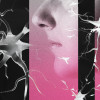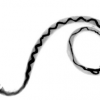Gene therapy advance thwarts brain cancer in rats

Researchers funded by the National Institute of Biomedical Imaging and Bioengineering have designed a nanoparticle transport system for gene delivery that destroys deadly brain gliomas in a rat model, significantly extending the lives of the treated animals. The nanoparticles are filled with genes for an enzyme that converts a prodrug called ganciclovir into a potent destroyer of the glioma cells.
Glioma is one of the most lethal human cancers, with a five year survival rate of just 12%, and no reliable treatment. Advances in the understanding of the molecular processes that cause these tumors has resulted in therapies aimed at delivering specific genes into tumors -- genes that make proteins to kill or suppress the growth of the tumor. Currently this approach relies heavily on using viruses to deliver the anti-tumor genes into the target cancer cells. Unfortunately, viral delivery poses significant safety risks including toxicity, activation of the patient's immune system against the virus, and the possibility of the virus itself encouraging tumors to develop.
"Efforts to treat glioma with traditional drug and radiation therapies have not been very successful," says Jessica Tucker, Ph.D., NIBIB Director for the Program in Gene and Drug Delivery Systems and Devices. "The ability to successfully deliver genes using these biodegradable nanoparticles, rather than potentially harmful viruses, is a significant step that reinvigorates the potential for gene therapy to treat deadly gliomas as well as other cancers."









































































